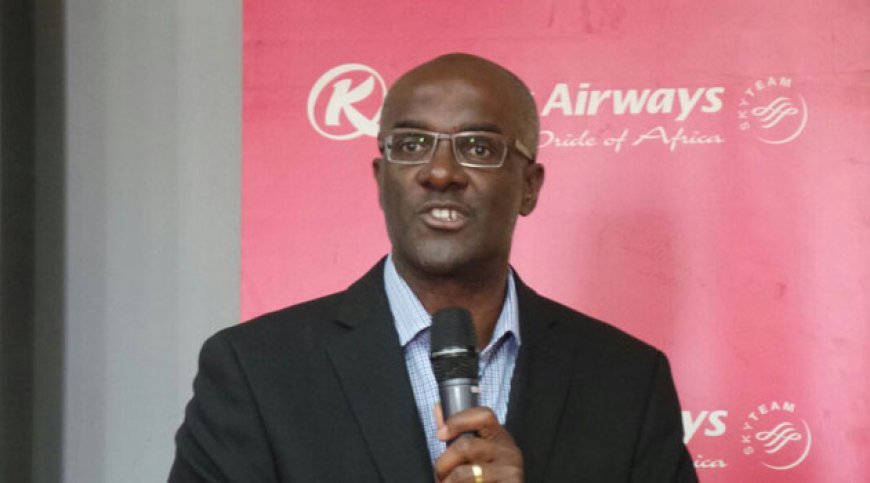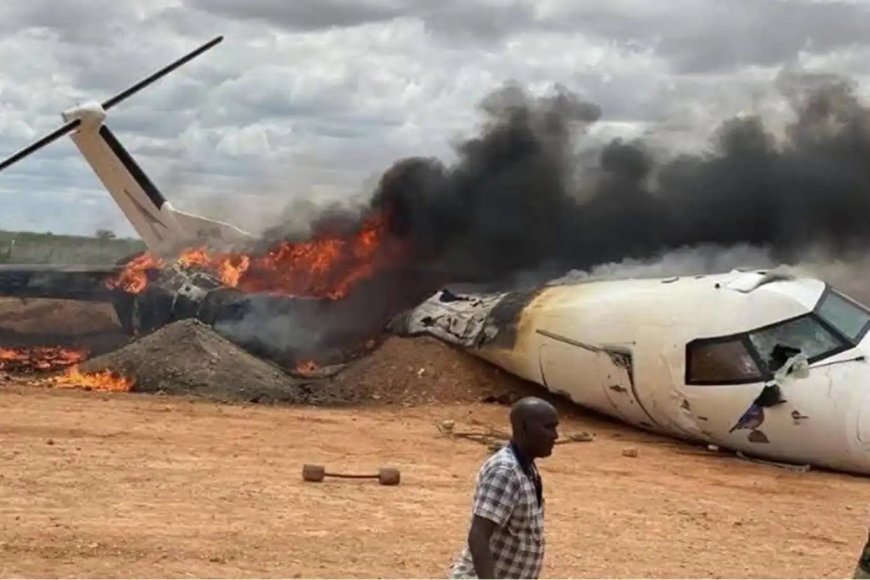Air operators have warned that the Finance Bill 2025's tax provisions targeting the aviation sector could lead to an increase in aircraft accidents as a result of higher costs in obtaining parts and maintenance services to keep aircraft functional and safe during flight.
Mbuvi Ngunze, chair of the Kenya Association of Air Operators (KAAO), told the National Assembly's Finance and Planning Committee that the proposed 16 percent VAT, along with the Railway Development Levy (RDL) and Import Declaration Fees (IDF) on aircraft, spacecraft, and parts, would drive up the cost of acquiring, leasing, or financing aviation equipment—making operators less competitive. He warned that these new taxes could severely damage the aviation sector.
Ngunze further noted that if the National Treasury’s Bill passes as is, it will significantly raise operating expenses for local airlines, Approved Maintenance Organisations (AMOs), and other aviation service providers, who would be hit with an extra 3.5 per cent in import charges from the combined 1.5 per cent IDF and two per cent RDL.
"The Finance Bill 2025 seeks to reintroduce VAT, Import Declaration Fees (IDF), and Railway Development Levy (RDL) on aircraft, parts, and maintenance services—measures that would fundamentally alter the cost structure of aviation in Kenya," Ngunze said.

Mbuvi Ngunze, chair of the Kenya Association of Air Operators (KAAO), during a past Kenya Airways event. /CAPITAL GROUP
"To safeguard economic growth, environmental goals, and regional leadership, it is imperative that Parliament upholds existing VAT, IDF, and RDL exemptions, aligning with the International Civil Aviation Organisation (ICAO) and East African Community ( EAC) frameworks. This will ensure Kenya remains at the forefront of aviation innovation in Africa."
Ngunze stated that bringing back the long-standing VAT exemptions on aviation-related goods and services, such as aircraft, spare parts, maintenance equipment, as well as waiving RDL, IDF fees, and withholding tax on exports, is crucial. Without these exemptions, he warned, the safety standards and global competitiveness of Kenya’s civil aviation sector would be negatively impacted.
"Chapter 88 of the East African Customs Union Common External Tariff covers aircraft, spacecraft and parts thereof. By limiting this exemption to aircraft above 2,000 Kgs, this disadvantages all other aviation equipment, including spare parts under chapter 8,8, which are essential," Ngunze added.
He informed the committee, led by Molo Member of Parliament (MP) Kiuria Kimani, that the aviation sector was granted tax exemptions on the IDF and RDL based on the clear agreement that these exemptions would help maintain its competitiveness and efficiency within the region.
Ngunze explained that the exemptions are a crucial part of the industry's cost setup because most of its income isn’t subject to VAT, so there are no tax offsets available. This directly affects the cash flow and increases operational expenses.
"The Finance Bill, 2025 re-introduces significant provisions that will negatively affect the aviation sector," Ngunze said during the public participation exercise on the Bill, pleading that "We request that you reinstate the exemption of VAT on all goods of Chapter 88 and other spacecraft."
He explained that the taxes will raise the cost of importing aircraft, engines, and parts like propellers, rotors, and landing gear, warning that the proposed Bill will drive up maintenance expenses, which will increase overall operational costs, costs that will eventually be passed on to passengers, affecting them directly through ticket purchases and other costs.
Why It Matters
Flying is the safest mode of transport worldwide. Statistically, air travel has the lowest accident and fatality rates compared to cars, trains, or ships.
Airlines operate under super-strict regulations, and planes go through rigorous maintenance and checks. Plus, pilots and crews get intense training to handle all kinds of situations. As the odds of having an accident on a flight are way lower than road accidents, for instance, any plane crash is a major development.
High taxes on aircraft parts directly impact the safety and reliability of Kenya’s aviation sector by increasing the cost of maintaining and repairing aircraft, thus the risk of aircraft accidents goes up.
When taxes such as Value Added Tax (VAT), Import Declaration Fees (IDF), and Railway Development Levies (RDL) are imposed on critical aviation components—like engines, propellers, rotors, and landing gear—the cost of importing these parts rises significantly. Since airlines and maintenance organisations often operate on tight margins, these extra costs can strain their budgets, forcing them to make difficult financial decisions.
One major consequence is that airlines and maintenance providers may delay routine maintenance or necessary repairs to save money. Regular upkeep is non-negotiable in aviation because even minor defects can escalate into serious safety hazards. If parts are too expensive to replace promptly, planes could end up flying with worn-out or malfunctioning components. This increases the risk of mechanical failure, which can lead to accidents.
Moreover, increased costs may push operators to source cheaper, lower-quality parts from unreliable suppliers, compromising safety standards further. Aviation parts must meet strict regulatory requirements to ensure reliability and performance; cutting corners here is dangerous. The industry’s inability to access affordable, high-quality parts due to high taxes undermines compliance with these safety norms.
Additionally, higher operational costs due to taxes often get passed on to passengers, which could reduce air travel demand. This squeeze on revenue could force airlines to reduce investment in safety programs and skilled personnel training.
In summary, high taxes on aircraft parts create a ripple effect that jeopardises aviation safety in Kenya by driving up costs, delaying maintenance, encouraging the use of substandard parts, and straining airline finances. Without affordable access to essential components, the industry risks increased mechanical failures and accidents, endangering passengers and crew alike.










